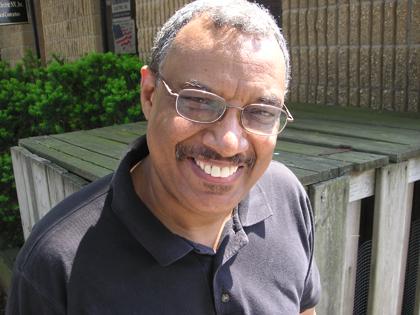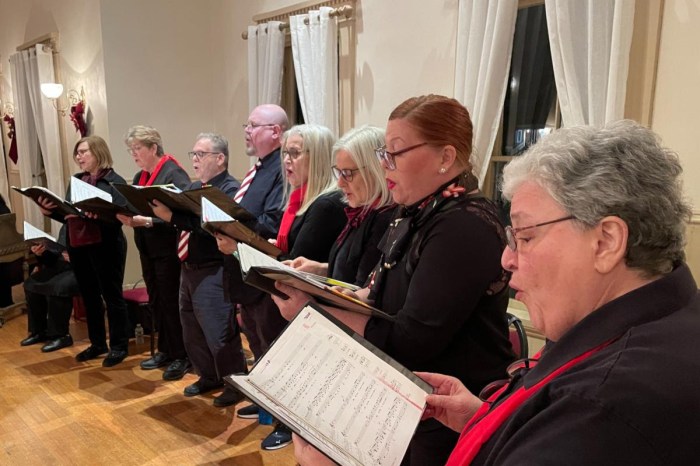By Ronald B. Hellman
In the beginning was the word, and Fred Rohan Vargas has lots of them. Chatting at my office, overlooking the LIRR Douglaston station, it was hard to tell who was doing the interviewing. But since it's my column, we decided it should be me, especially since Fred, now age 59, has done so many things that most people never get to do. “I'm just starting the second act of my life,” he proclaims.
If you go to Fred's Web site, www.RohanVargas.com, it says that he's a playwright, artist and composer, but that's just scratching the surface.
Born in Manhattan and late of Jackson Heights, with ethnic roots mainly in the Dominican Republic — although there's some French in there with a possible aristocratic twist — he grew up on Staten Island, attending the CUNY school then known as Richmond College. An early venture was the creation of a dance/theater company for the black community in New Brighton (Staten Island) called The Brothers and Sisters United.
Some time later he found himself on St. Thomas in the Virgin Islands as a disk jockey for radio station WSTA. He was known as “the poet” since he liked to slip in some of his poems in between the music. There his play-writing was encouraged by John Patrick (a Pulitzer Prize and Tony Award winner for “The Teahouse of the August Moon” and a successful screenwriter of such films as “Three Coins in the Fountain”).
Fred has written some 20 plays — a number of full-length, a lot of one-acts and a few for children — produced throughout the country. His first one was “Why De Donkey So Stubborn,” about discrimination; his most successful is “Crystal,” about three youngsters involved in a violent crime; and his personal favorite, “Menu,” about the immigrant experience.
At New York University (Tisch School of the Arts), Fred got his master's degree in dramatic writing and was fortunate enough to be taught by playwright Lanford Wilson (“Talley's Folly”) and his director-collaborator Marshall W. Mason. At that time he did some prop work at the Cherry Lane Theater, where “True West” was produced with John Malkovich and Gary Sinise.
An article he wrote for a now defunct magazine, Latin New York, got a lot of notoriety.
The subject was el bigote, the mustache, and whether Latin women preferred their men with or without. (Apparently, it was a split decision.)
Recently retired from 25 years in the New York City school system, much of it on the Lower East Side, Fred is married to Susan Rohan, a Hong Kong native who is now an assistant principal at Cardozo High School in Bayside. They have two teenage children out in Valley Stream.
Did I mention that he also writes music, plays the conga drums and dabbles at the piano? As for his words, Fred advises that “if you want to write well, you have to be willing to rewrite and rewrite.” One of his more recent activities is a correspondence course with the Long Ridge Writers Group in West Redding, Conn. — could writing the Great American Novel be next?
Contact Ron Hellman at RBH24@Columbia.edu.




































